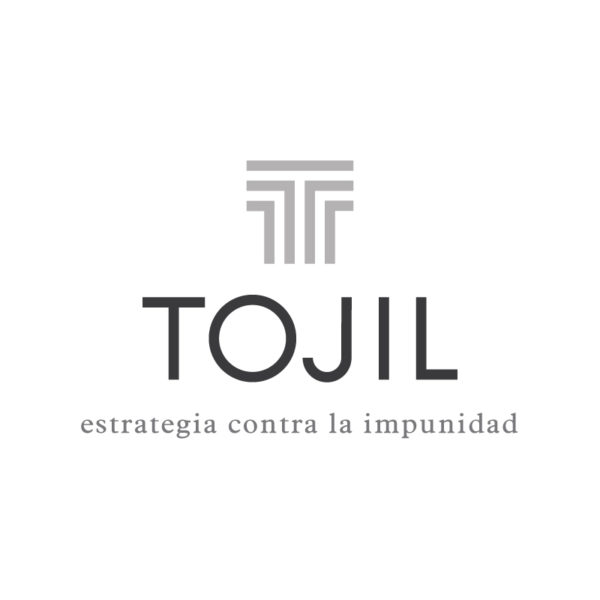What are your organisation’s main goals?
Tojil’s long-term goal is to achieve real access to criminal justice in México, particularly by reducing corruption through strategic litigation.
Our main objective is to achieve recognition as collective victims in crimes of corruption to be able to participate in criminal proceedings, to be able to request the reparation of damages and to be able to appeal determinations of the prosecution.
However, we also work with investigation and prosecution authorities to develop suitable capabilities to investigate and prosecute corruption crimes. And, finally we find it crucial to empower citizens to know and defend their rights to access criminal justice.
How does your organisation operate?
We have a General Director co-directed by our founders Adriana Greaves and Estefania Medina. And we have three main areas: 1. Strategic litigation, 2. Policy, 3. Communications.
Our stakeholders are public authorities such as the Attorney General Offices of different states, the Financial Intelligence Unit, as well as national and international NGO´s such as Transparency International Mexican Chapter, Due Process of Law Foundation, MacArthur Foundation, MCCI, Zero Impunity, and the Businessmen Group (COPARMEX).
What are the biggest successes your organisation has accomplished in the field of anti-corruption in the past years?
- In 2019, we achieved a landmark resolution in a big case related to a former governor of Veracruz, in which a federal judge recognised TOJIL as a corruption victim in a corruption criminal process. Even though this resolution was eventually revoked in a higher tribunal, we took the case and filed a petition with the Inter American Commission of Human Rights.
- In 2019 we achieved legal standing as victims of corruption in a landmark case related to ecological and corruption crimes committed by a national pharmaceutical company. Currently, we are working hand in hand with prosecutors of the Attorney General’s Office in Mexico City to investigate and indict the company.
- In 2020 we signed an agreement with the Financial Intelligence Unit to work very closely in sharing information and strategies to reduce impunity in corruption cases.
- We are leading a special project to work with the anticorruption prosecution offices of most Mexican states, to help them increase their abilities and capabilities to investigate and prosecute corruption cases.
- We have launched a series of practical guides to help citizens and potential victims navigate a criminal process, in cases of gender violence and corruption.
What are the key challenges specific to your local context that your organisation has been facing?
- Even though the government has promoted the anti-corruption agenda as a priority, realistically speaking there is not a clear strategy to achieve this goal.
- The federal government is limiting the action scope of civil society organisations by reducing their credibility and means to fund themselves.
- The Attorney General Offices and the Anticorruption Units refuse civil society participation during corruption investigations.
- The Attorney General Office has been illegally approving witness collaboration agreements and as a consequence, exonerating people who are accused of grand corruption cases and as a result, there is impunity in these cases.
- Judges and prosecutors’ lack of impartiality to put politicians and businessmen involved in corruption networks on trial.
What can other organisations learn from you?
- Strategic criminal litigation is a powerful tool to achieve civil society participation in corruption cases. Our main strength has been using the legal framework and international precedents to promote the legal standing as corruption victims.
- Sometimes, given the political atmosphere, it is important to take the big corruption cases to international tribunals or universal jurisdictions.
- It is fundamental to share experiences with other organisations and countries.
- Without a doubt, a communication strategy is as important as the legal strategy in anticorruption cases, mainly to gain support of the citizens.
- Working hand in hand with government stakeholders who have the same interest to fight corruption is a powerful and useful strategy.
Why is it important for your organisation to be a member of the UNCAC Coalition?
We are very excited to be part of the UNCAC Coalition because it represents a great opportunity to learn about international experiences and efforts which we can use in our own strategies, and also to share our own experiences.




